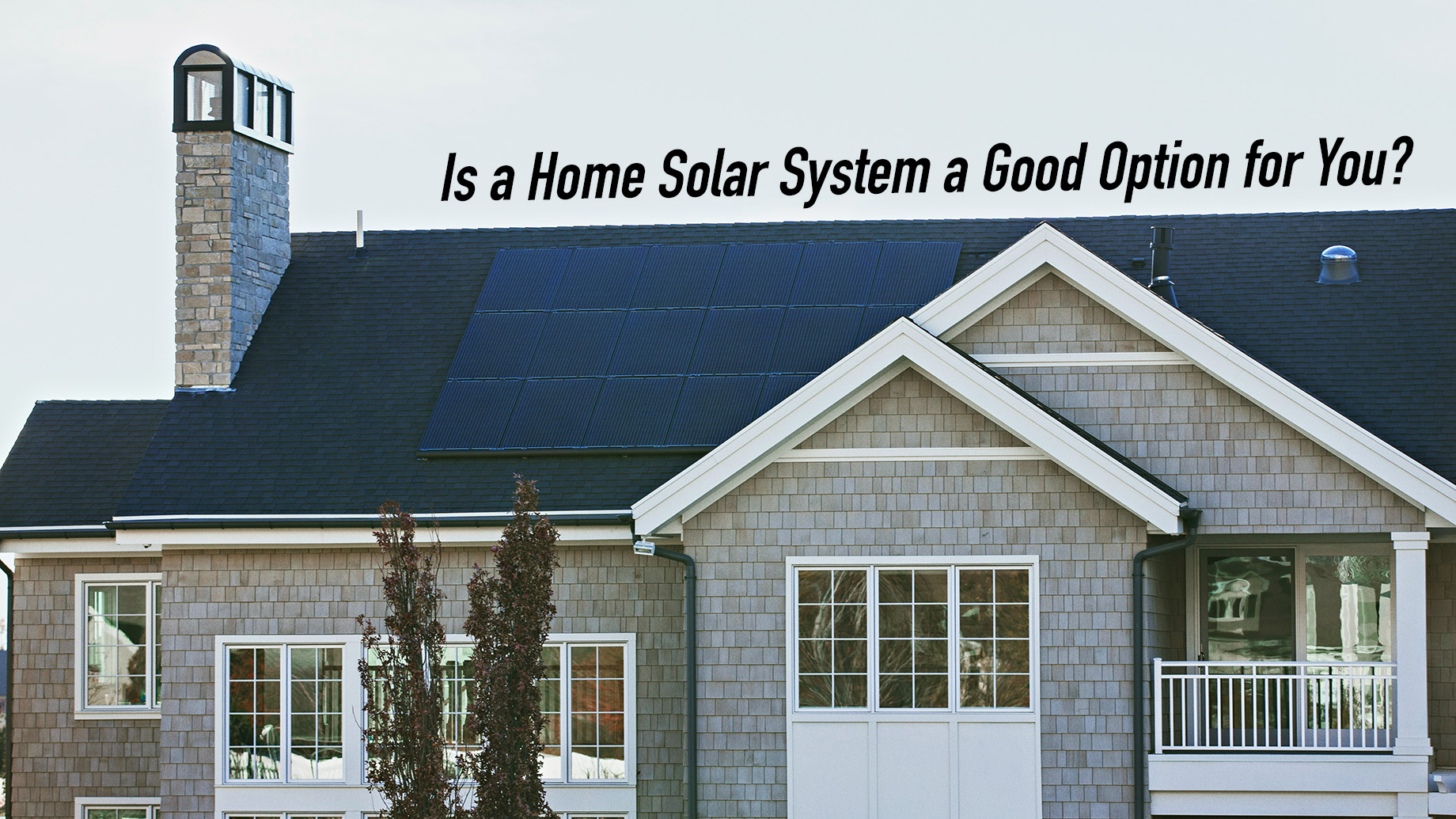
Home solar systems are becoming more popular. They are considered to be an environmentally friendly energy option for residential homes that can help families cut back on their energy costs as well. The idea is simple: You can install solar panels on your home, which are connected to the power grid. These panels produce their own electricity when the sunlight falls on their photovoltaic cells. This electricity can then be used to power your entire home. However, the panels do not produce at night time, and this is when your house will be powered from power from the grid.
However, having a home services company or solar provider install a home solar system is no small decision. To help you do your research from a homeowner’s point of view, here are a few pros and cons on home solar systems to help you make an informed decision:
The Pros of a Home Solar System
1. Lowers Your Electric Bills
Perhaps the biggest advantage of a home solar system is that it can help you save a substantial amount of money by lowering your electric bill. The option of net metering allows homeowners to offset their electric bills with the electricity that is produced by their solar panels. In some cases, they can also sell any excess electricity that is produced by their solar systems to the utility. This can help them offset their future electric costs as well.
2. Insurance Against Increasing Power Prices
We all know that the price of electricity rises over the years. There has been a steady rise in these prices for the past ten years, and that the same trend is expected to continue. This means that while electric bills will go up, you can protect yourself from bearing such huge costs by switching to solar energy.
3. Quick Return on Investment
Not only can home solar systems be a source of some extra income for you through net metering, but the savings you are expected to make, and all other incentives pay back the initial cost of installing the system. The payback time for such solar systems can be as little as four years. The best part is when the initial investment is paid off, the solar panels in your home will continue to provide absolutely free power to your home.
4. An Environmentally Sustainable Option
Another major pro of switching to solar power is that it is a renewable energy source. This means that it will never run out as long as the sun comes out each day! By using the energy from the sun, we are not depleting other fuel sources such as gas or coal. Secondly, solar energy does not create harmful greenhouse gas emissions as other energy sources do. It is a form of clean energy that is environmentally friendly. By switching to a home solar system, not only are you saving your money, but you are also saving the environment!
5. Independent Energy Source
Solar systems also give you and your house energy independence. You do not need to rely on the traditional electric grid and can produce your own electricity. This means no more worrying about power outages or voltage changes that sometimes occur due to the grid. You get the ability to control your home’s power source, and this ensures uninterrupted transmission, which would not disrupt your daily activities.
Cons of Home Solar Systems
1. High Initial Investment
It is no secret that installing a home solar system means paying some upfront costs. This is the biggest drawback of the energy source, and most people back out of this option just because of the cost. The cost of a solar system varies by the area and region, and in most cases, a federal tax credit is also imposed on you. If you do not have this extra money lying around, you might want to consider something else.
2. Intermittent Energy Source
Solar energy is an intermittent source of power because it is dependent on the sun. Solar panels are only able to generate electricity when they receive an adequate amount of sunlight. This means that no power will be produced at night. Moreover, the intensity and the location of the sunlight also matters. Other factors like clouds, snow, rain, and foliage cover can also negatively impact the amount of energy that your solar system can produce. So, if you live in an area where there is minimal sunshine, this might not be the best option for you.
3. Solar Panels Need Space
You must also consider how much space your home has for installing solar panels. The larger the area of solar panels, the more electricity it can produce. If your house does not have enough space, then there is no point.
With all that said, you should have a better idea of what you might be getting yourself into when it comes to installing and using a home solar system. If you can afford the installation and have the space for the panels, it just might be the right option for you!